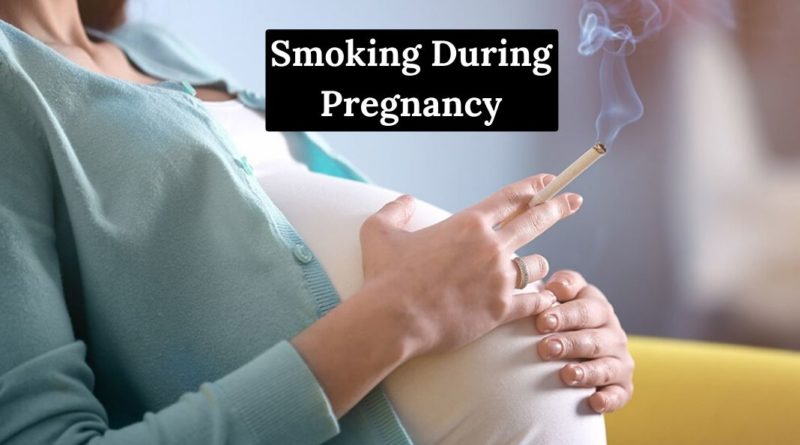Smoking During Pregnancy
If the mother smoking during pregnancy, her blood and that of the fetus will have a lower than normal level of oxygen and the toxic substances will pass to the fetus.
Table of Contents
Why is smoking dangerous during pregnancy?
The fetus receives everything the mother takes. It obtains the necessary oxygen and nutrients through the placenta and the umbilical cord. If the mother smokes, the fetus will be exposed to toxins (poisonous substances) present in tobacco smoke (1).
During pregnancy, the pregnant woman is creating a new life and it is she who ends up deciding whether to smoke or quit tobacco. However, she has to think very seriously that this decision not only affects her and those around her but can seriously jeopardize the health of her future child that depends entirely on what the mother does. The first passive smoker is your own child.
Pregnancy or the desire to become pregnant is an excellent opportunity to quit smoking, both for the mother’s sake and for the health of the future child.
[Also Read: 10 Hobbies worth taking up during pregnancy]
What changes does tobacco products in the body?
When smoking, part of the oxygen in the blood is replaced by carbon monoxide. If the mother-to-be continues to smoke, her blood and that of the fetus will have a below-normal oxygen level.
The tobacco smoke particles contain various toxic substances that modify the ability of the blood to perform its function in a proper and normal way. This can affect the placenta, which your future child feeds on.
What harm can tobacco cause to the fetus?
Newborns of smoking mothers:
- They are more likely to be born prematurely and underweight. This implies a higher risk of future complications and hospital stays.
- They usually weigh an average of 200 grams. below the average of the children of nonsmoking mothers with similar characteristics.
- They are at twice the risk of sudden infant death. There seems to be a direct relationship between cases of sudden death and smoking by parents (both father and mother). The toxic substances that tobacco contains, in addition to being in the air that we can breathe, accompany us in our clothes, our hands, or in the air that we release with our breathing.
- They get sick more often than children with non-smoking parents. They go to the doctor and have to be hospitalized more frequently than the children of non-smoking parents. This also implies a greater number of missed days of schooling.
- In their first years of life, they suffer more diseases such as inflammation of the middle ear, persistent cough, and bronchitis. The number of asthmatic children is higher among smoking parents.
- They are more likely to become adult smokers. Keep in mind that children from a young age are the best imitators of adult behavior.
On the other hand, pregnant women who smoke increase the risk of losing their child. In the later stages of pregnancy, pregnant women who smoke have an increased risk of placental abruption. This can lead to premature labor, the suffocation of the fetus from lack of oxygen, and even death within the uterus.
This implies an increased risk of complications during labor and pregnancy for both the mother and her future child.
How to quit tobacco?
It is never too late to quit smoking. Life is lengthened with each smokeless cigarette. Each deleted cigarette is an aid to the fetus. The damage caused by tobacco can be recovered, as long as it is not too late.
Nicotine replacement therapies (TSN) with chewing gum and patches are not currently recommended in pregnant women. However, the North American Agency for Health Policy and Research supports the use of NRTs during pregnancy in cases of smokers who feel unable to quit. Conclusive results are pending.
The proven experience shows that the advice given by specialized health personnel manages to duplicate the abandonment of tobacco by pregnant women.
Quitting tobacco is the most important measure a mother can take for her health and that of her future child. Pregnant women can get support and help to quit smoking through the midwife, gynecologist, or their family doctor.
Just think about the specific day: “Today we are not going to smoke, nor am I, my future son.” Remember that quitting smoking necessarily involves not only not smoking, but also avoiding surrounding yourself with smokers or staying indoors where you smoke. Enforce your rights and those of your future child.




